Introduction
Belt bags, also known as fanny packs or bum bags, are making a powerful comeback in today’s fashion scene. No longer limited to outdoor adventures or festivals, these stylish yet functional accessories are being embraced across industries—from streetwear and fitness to travel and luxury fashion.
What’s driving this surge in popularity? It’s the perfect combination of utility and personal expression. Today’s consumers want convenience, but they also want products that reflect their identity. That’s why personalized belt bags are becoming a top-selling item in online fashion and accessory stores.
Table of Contents
If you’re a designer, entrepreneur, or influencer interested in starting your own online brand, there’s never been a better time to enter the market—and Print-on-Demand (POD) makes it incredibly easy. You don’t need to worry about inventory, large upfront investments, or warehouse management. POD platforms allow you to focus on design and marketing, while they take care of production, packaging, and shipping.
In this guide, you’ll learn exactly how to design, launch, market, and grow a profitable POD business focused on custom belt bags.
Choosing the Best POD Platform for Belt Bags
Not all POD providers offer belt bags, and those that do differ in terms of quality, customization options, shipping speed, and product variety. Here’s a breakdown of some of the best platforms for selling personalized belt bags online:
SwagifyPOD
Best for budget-friendly sellers.
SwagifyPOD connects you with multiple print providers worldwide. It offers a variety of belt bag options with competitive pricing, ideal for sellers just starting out or targeting cost-conscious customers.
Printful
Best for premium branding and global reach.
Printful stands out with its high-quality materials, white-label packaging, and built-in branding tools. Perfect for brands looking to scale and establish a strong, professional identity.
Printify
Best for eco-conscious and independent brands.
Printify offers sustainable options, like organic cotton and recycled polyester. It also includes a built-in website builder, allowing you to launch a fully branded storefront without third-party platforms.
Contrado
Best for luxury and handcrafted customization.
If your target market values handmade craftsmanship and bespoke design, Contrado offers real leather belt bags and artisan printing. These are perfect for premium or designer-level audiences.
PrintStop
Best for outdoor and utility-focused designs.
PrintStop specializes in belt bags made with water-repellent fabric, multi-pocket compartments, and rugged durability. Ideal for travel, hiking, or tactical gear brands.
What to Consider Before Choosing a POD Platform:
- Customization area: Make sure the bag offers enough print space for your designs (e.g., front panels, zippers, straps).
- Materials: Consider polyester for everyday durability, faux leather for fashion-focused designs, or canvas for a natural, eco-friendly appeal.
- Shipping options: Review fulfillment times, international delivery, and packaging.
- Platform integrations: Check if the POD provider connects easily with platforms like Shopify, Etsy, or WooCommerce.
Designing Your Custom Belt Bag
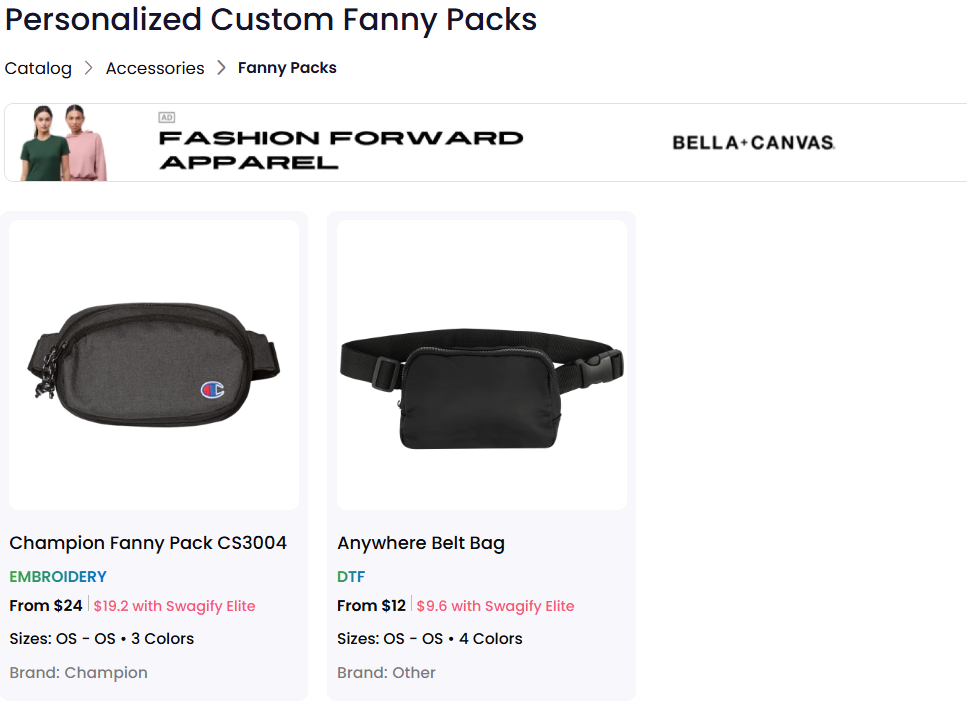
This is where your creativity comes to life. A well-designed belt bag can be more than an accessory—it can become a style statement or even a giftable item that resonates with your audience.
A. Selecting the Right Base Product
Start by identifying who you’re designing for. Ask:
- Is your audience fashion-forward Gen Z shoppers?
- Are they travelers or outdoor enthusiasts?
- Do they want luxury or eco-conscious products?
Once you know your niche, choose a base product that fits:
- Polyester – Durable, lightweight, water-resistant.
- Faux leather – Stylish and upscale without using animal products.
- Canvas/cotton – Biodegradable and trendy among sustainable buyers.
Look for functional elements like:
- Adjustable straps for different body sizes
- Multiple zippered pockets
- Water resistance
- Hidden compartments
B. Creating and Uploading Your Design
Use online tools to design your belt bag layout, pattern, or message. Some POD platforms have built-in design editors, or you can use external tools:
- Adobe Photoshop or Illustrator – For professionals seeking full design control.
- Canva or Adobe Express – Great for beginners.
- Photopea – A free Photoshop alternative online.
Key Design Tips:
- Use 300 DPI resolution – Ensures clear, sharp prints.
- Contrast is key – Bright graphics stand out on darker bags and vice versa.
- Test design placements – Try the front pocket, side panels, or even the straps.
- Personalization features – Allow customers to add their name, initials, or favorite quotes.
C. Ordering a Sample (A Must-Do Step)
Before launching your product:
- Order a physical sample. Check stitching, print quality, fabric texture, and durability.
- Take your own photos. Use these for mockups, social media content, and your product listings. Authentic photos often convert better than digitally generated ones.
Setting Up Your Online Store
| Category | Details |
|---|---|
| E-Commerce Platforms | Shopify, Etsy, WooCommerce |
| POD Integrations | Printify, Printful, Gooten |
| Product Listings | Use high-quality images, detailed size charts, and customization options |
| Customization Tools | Use Shopify apps like Customily or Zakeke for font and color personalization |
| Pricing Strategy | Base POD cost + 50–100% markup = profit margin |
| Shipping & Fulfillment | Ensure POD partner offers global shipping and reliable tracking |
| Return Policies | Clearly state custom product policies; handle exceptions with care |
Once you’ve finalized your design and chosen a POD provider, it’s time to create a storefront where customers can buy your belt bags.
A. Choosing an E-Commerce Platform
- Shopify – Ideal for complete control, customization, and scalability.
- Etsy – Great for reaching customers looking for handmade or custom items. You benefit from built-in traffic.
- WooCommerce – Best for WordPress users. Offers flexibility and no monthly fees, but requires some tech skills.
B. Optimizing Product Listings for Sales
Here’s how to make your listings stand out:
- Use realistic mockups – Upload images that show your belt bag in everyday use (e.g., someone wearing it while traveling or working out).
- Write SEO-optimized descriptions – Use keywords like:
- “personalized belt bags”
- “custom fanny packs“
- “eco-friendly bum bags”
- Price strategically –
Example:- Production cost: $7.50
- Shipping: $5.00
- Total cost: $12.50
- Selling price: $25–$30
- Profit margin: 50–100%
Don’t forget to include size specs, care instructions, and a brief description of how it’s made.
Marketing Your Personalized Belt Bags
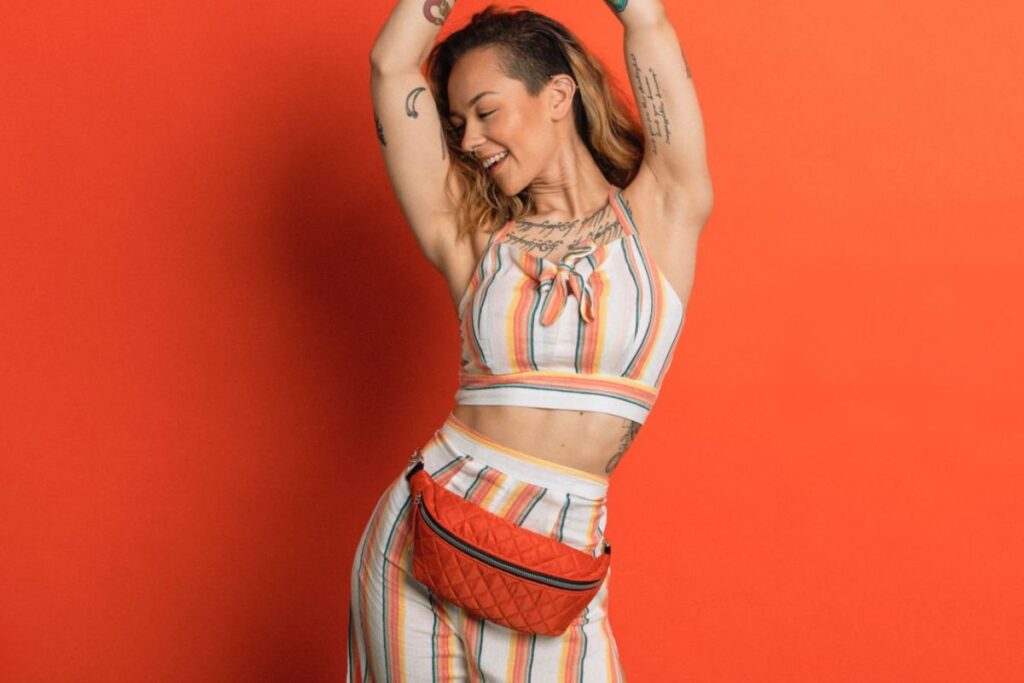
Marketing is where your brand takes off. Here are several proven strategies to attract traffic and generate sales.
A. Social Media & Influencer Marketing
- Instagram Reels and TikTok – Show off styling tips, behind-the-scenes design work, and customer testimonials.
- Pinterest – Pin outfit ideas, packing essentials, or “gifts for travelers.”
- Influencer outreach – Send samples to micro-influencers in travel, fashion, or fitness niches. Offer affiliate links to encourage sales.
B. SEO & Content Marketing
Creating helpful content around your product helps drive free, organic traffic over time.
Blog ideas:
- “Top 10 Belt Bag Trends for 2025”
- “Best Personalized Gifts for Travelers”
- “Why Fanny Packs Are Back in Style”
Use tools like Ubersuggest or Google Trends to find keywords with high search volume.
C. Paid Advertising (Optional)
If you have a marketing budget, consider:
- Facebook and Instagram Ads – Target based on interests (e.g., hiking, travel, fashion).
- Google Shopping – Display your products to users actively searching for belt bags.
- Retargeting Ads – Reach users who visited your store but didn’t purchase.
Order Fulfillment & Scaling Your Business
| Stage | Details | Tools/Partners | Tips for Optimization |
|---|---|---|---|
| 1. Order Processing | Capture customer orders via website or marketplace | Shopify, WooCommerce, Etsy, Amazon | Automate confirmation emails and use order tracking systems |
| 2. Customization Input | Collect personalized details (name, initials, color, etc.) | Custom fields plugin, order notes, third-party app | Use product preview tools so customers can visualize their custom bag |
| 3. Production Workflow | Create the customized belt bag as per the order | In-house team or print-on-demand (POD) partner | Use laser engraving, embroidery, or heat press for quality personalization |
| 4. Quality Control | Inspect each belt bag for customization accuracy and defects | Manual inspection checklist | Implement a 3-step check: material, print, and finish |
| 5. Packaging | Pack in eco-friendly or branded packaging with care instructions | Branded packaging suppliers | Add personal thank-you cards to boost customer retention |
| 6. Shipping & Delivery | Ship orders nationally/internationally with tracking | Shippo, ShipStation, USPS, FedEx, DHL | Offer multiple shipping options; provide real-time tracking to customers |
| 7. Customer Service | Handle queries, updates, and returns efficiently | Gorgias, Zendesk, Helpdesk apps | Set up FAQ pages and automated responses for common questions |
| 8. Inventory Management | Track raw materials and stock of base belt bags | TradeGecko, Zoho Inventory | Set low-stock alerts and reorder levels |
| 9. Analytics & Feedback | Collect feedback, reviews, and track performance metrics | Google Analytics, Yotpo, Judge.me | Monitor best-selling styles and personalization trends |
| 10. Scaling Operations | Expand team, increase ad spend, explore new channels and automation tools | Meta Ads, Google Ads, Influencer marketing | Outsource fulfillment or switch to POD services for large-scale production |
| 11. Product Line Expansion | Introduce matching accessories or limited edition designs | Custom wallets, keychains, crossbody bags | Use bundles and upsells to increase average order value |
Once your store is live and orders start rolling in, here’s how to handle fulfillment and scale your operations.
- Automated Fulfillment – Your POD provider will automatically print, pack, and ship the order once it’s placed.
- Customer Service – Be responsive to queries. Offer clear policies on returns, exchanges, and delivery times.
- Expand Your Product Line – Once your belt bags are selling, consider adding:
- Matching backpacks
- Personalized wallets
- Apparel like custom t-shirts or hoodies
Use upsells and bundles to increase your average order value.
Conclusion
Launching a personalized belt bag business with Print-on-Demand is not only possible—it’s one of the most scalable and beginner-friendly paths to building a fashion or accessories brand online.
Here’s a quick recap:
- Choose a POD provider that fits your brand’s quality and budget needs.
- Design belt bags that are functional, stylish, and personal.
- Set up an SEO-optimized store with eye-catching mockups and clear pricing.
- Market across social platforms, influencer networks, and content marketing.
- Automate fulfillment and reinvest in scaling your brand.
Ready to create your first custom belt bag? Sign up with a Print-on-Demand platform and start designing today.
Bonus: Free Resources for Success
- Free design templates – Use Canva or Photopea to customize ready-made belt bag layouts.
- POD Profit Calculator – Estimate your margins and find the best pricing strategy.
- Facebook Groups for POD sellers – Join communities like “POD Ninjas” or “Printify Sellers” for tips, support, and updates.

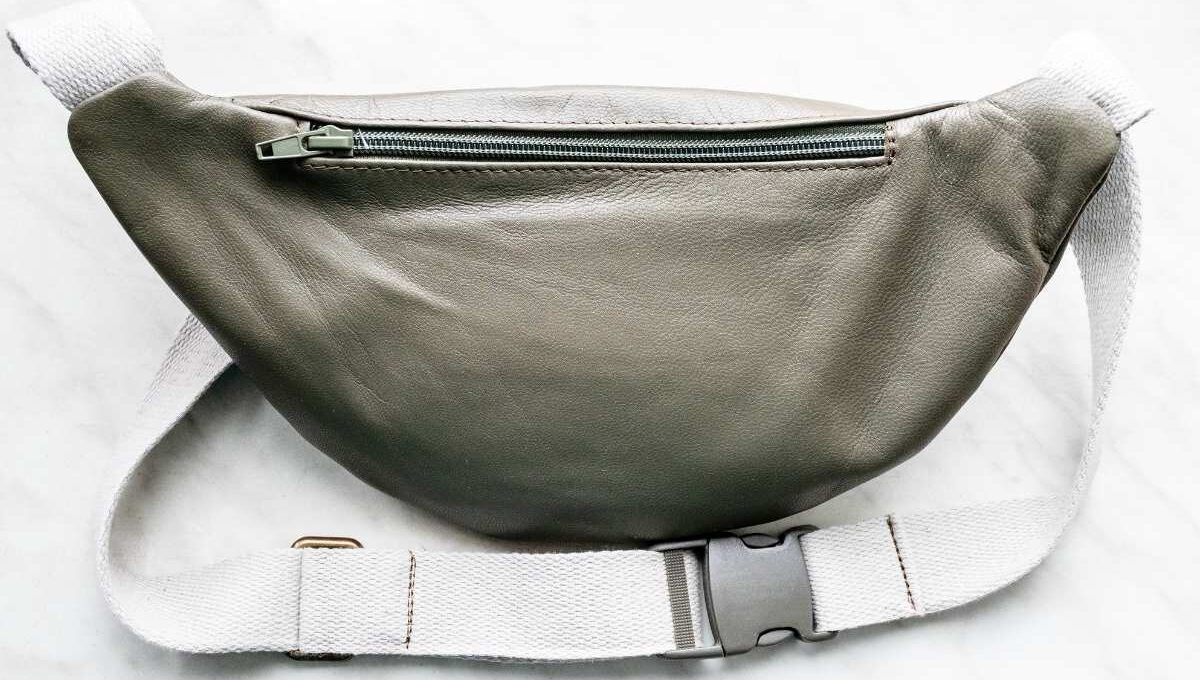
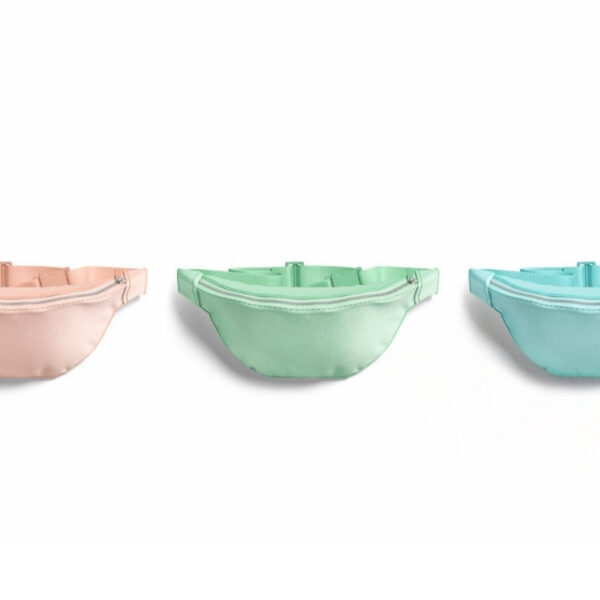
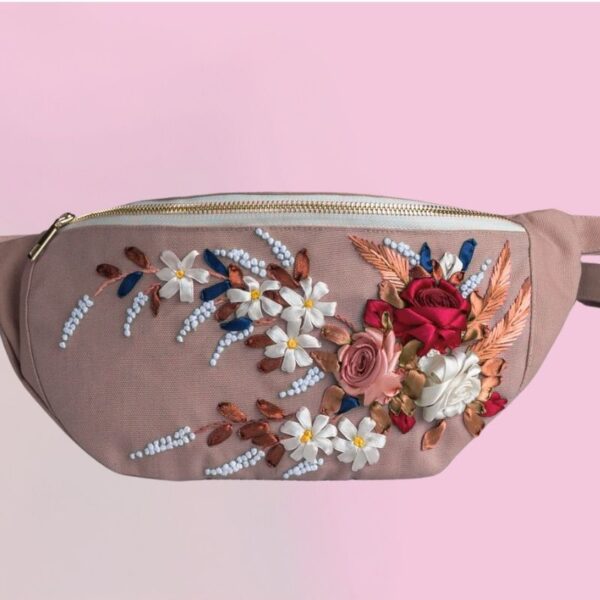
Sign up